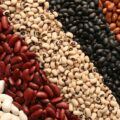
Nigeria, like many other countries, faces the challenge of balancing traditional cuisine and healthy eating practices. However, there is a growing awareness of the importance of healthy eating and its impact on overall well-being.
Nigeria’s cultural diversity is reflected in its cuisine, which offers a wide variety of nutritious ingredients. Staples such as vegetables, fruits, legumes (beans, lentils), whole grains (rice, maize), lean meats (fish, poultry), and traditional spices are integral to Nigerian dishes. These ingredients provide essential nutrients, vitamins, minerals, and dietary fiber.
With modernization and increased exposure to Western influences, there has been a shift towards processed and convenience foods in Nigeria. These foods are often high in unhealthy fats, refined carbohydrates, sodium, and added sugars. It is important to strike a balance and retain the traditional, nutrient-rich foods while moderating the consumption of processed foods.
Awareness about healthy eating is growing in Nigeria. There is a rise in health-conscious individuals, health-focused organizations, and campaigns promoting nutritious eating habits. These efforts aim to educate the population about the importance of balanced diets, portion control, and reducing the consumption of high-calorie, low-nutrient foods.
Here are the top 10 healthiest Nigerian foods:
- Vegetable Soup (Efo Riro): Efo Riro is a popular Nigerian soup that features a variety of vegetables such as spinach, pumpkin leaves, and other leafy greens. These vegetables are rich in vitamins A, C, and K, as well as minerals like iron and calcium. The soup is typically prepared with a base of onions, peppers, and tomatoes, providing additional antioxidants and flavor. It can be enriched with protein sources such as fish, shrimp, or meat. Efo Riro is a nutritious dish that offers a great combination of vitamins, minerals, and fiber.
- Ukwa (African Breadfruit): Ukwa is a popular dish in southeastern Nigeria made from African breadfruit. The seeds of the breadfruit are boiled and cooked with spices, palm oil, and other ingredients. Ukwa is a good source of dietary fiber and contains essential minerals such as potassium and magnesium. It is often served with a side of vegetables or fish for a balanced meal. Fish, such as mackerel, catfish, or tilapia, is a great source of lean protein. It contains essential amino acids and is lower in saturated fats compared to other meat sources. Fish is also rich in omega-3 fatty acids, which have been linked to improved heart health and reduced inflammation. Grilling the fish helps retain its natural flavors while minimizing the need for added fats, making it a nutritious choice.
- Moi Moi: Moi Moi is a steamed bean pudding made from black-eyed peas or brown beans. It is a protein-rich dish, as beans are a good source of plant-based protein. Beans also provide dietary fiber, which aids digestion and promotes satiety. Moi Moi is often seasoned with onions, peppers, and spices, enhancing its flavor profile. The addition of vegetables like bell peppers, carrots, or leafy greens further boosts its nutritional content, making it a wholesome and satisfying dish.
- Brown Rice Jollof: Jollof rice is a well-loved Nigerian dish, and using brown rice instead of white rice increases its nutritional value. Brown rice is a whole grain that contains the bran, germ, and endosperm, making it richer in fiber, vitamins, and minerals compared to refined white rice. It provides complex carbohydrates, which are digested slowly, leading to sustained energy levels. Jollof rice is typically prepared with a tomato-based sauce, onions, and spices, adding flavor and antioxidants to the dish.
- Yam and Vegetable Sauce: Yam is a starchy tuber widely consumed in Nigeria. It is a good source of carbohydrates and provides dietary fiber, which aids in digestion and promotes feelings of fullness. When combined with a flavorful vegetable sauce, made from ingredients like tomatoes, onions, bell peppers, and leafy greens, it creates a balanced and nutritious meal. The vegetable sauce adds vitamins, minerals, and antioxidants, while the yam offers energy and sustenance.
- Okra Soup (Okro Soup): Okra soup is a delicious and nutritious Nigerian dish made with okra, tomatoes, onions, and spices. Okra is low in calories and rich in dietary fiber, which aids in digestion and helps regulate blood sugar levels. It also contains vitamins A, C, and K, as well as minerals like magnesium and folate. The combination of okra, tomatoes, and onions provides a good balance of nutrients and antioxidants, making it a healthy choice.
- Baked Plantain: Plantains are a versatile ingredient in Nigerian cuisine. While they are typically fried, baking plantains is a healthier alternative. Baking allows the plantains to caramelize and develop a sweet and tender texture without the need for excessive oil. Plantains are a good source of dietary fiber, vitamins A and C, and minerals like potassium. Baked plantains can be enjoyed as a side dish or combined with other healthy ingredients for a balanced meal.
- Fish Pepper Soup: Fish pepper soup is a spicy and aromatic soup made with fish, herbs, and spices. It is known for its bold flavors and warming properties. As mentioned earlier, fish is an excellent source of lean protein and omega-3 fatty acids. The combination of fish and flavorful spices such as ginger, garlic, and chili peppers not only enhances the taste but also provides potential health benefits. These spices have antimicrobial and anti-inflammatory properties. Fish pepper soup is a nutritious option that satisfies both the taste buds and the body.
- Garden Egg Sauce: Garden egg sauce is a flavorful Nigerian dish made from garden eggs, also known as eggplants. Eggplants are low in calories and high in dietary fiber, which aids in digestion and helps maintain a healthy weight. They are also a good source of vitamins, including vitamin C, and minerals such as potassium and manganese. The sauce is prepared by sautéing onions, tomatoes, and other spices before adding the chopped eggplants. It can be served with boiled or roasted yam, plantains, or rice for a satisfying and nutritious meal.
- Oatmeal Pottage (Pap/Ogi/Akamu): Oatmeal pottage, commonly known as pap, ogi, or akamu, is a traditional Nigerian breakfast dish made from fermented maize, millet, or sorghum. Oats can also be used as a healthier alternative. It is a rich source of carbohydrates, dietary fiber, and essential vitamins and minerals. Oatmeal pottage can be enjoyed plain or sweetened with fruits like bananas or berries.
Benefits Of Eating Healthy Nigerian Dishes
Eating healthy Nigerian dishes offers numerous benefits for overall well-being and specific aspects of health. Here are some key benefits of consuming healthy Nigerian dishes:
- Nutritional Balance: Healthy Nigerian dishes are typically rich in a variety of essential nutrients. They provide a balanced combination of macronutrients (carbohydrates, proteins, and fats) and micronutrients (vitamins and minerals), which are vital for the body’s optimal functioning.
- Weight Management: Healthy Nigerian dishes are often nutrient-dense and lower in calories compared to processed and unhealthy foods. Consuming these dishes can help in weight management by providing satiety and reducing the intake of excessive calories, unhealthy fats, and added sugars.
- Heart Health: Many healthy Nigerian dishes contain ingredients that promote heart health. For example, dishes prepared with lean proteins like fish or grilled meats reduce the intake of saturated fats, which are associated with an increased risk of heart disease. Additionally, the inclusion of vegetables, whole grains, and legumes in Nigerian cuisine provides dietary fiber and antioxidants that support heart health.
- Digestive Health: Nigerian dishes that include a variety of vegetables, legumes, and whole grains contribute to a healthy digestive system. These foods are rich in dietary fiber, which aids in digestion, prevents constipation, and supports a healthy gut microbiome.
- Blood Sugar Regulation: Traditional Nigerian dishes, such as those made with beans or whole grains like brown rice, have a lower glycemic index compared to refined carbohydrates. This means they are digested more slowly, resulting in a gradual release of glucose into the bloodstream and better blood sugar regulation.
- Increased Energy Levels: Healthy Nigerian dishes provide a good balance of carbohydrates, proteins, and healthy fats. They provide sustained energy throughout the day, preventing energy crashes and promoting optimal physical and mental performance.
- Bone Health: Nigerian dishes often incorporate ingredients that support bone health. For instance, vegetables like pumpkin leaves and ugwu (fluted pumpkin) are rich in calcium, while fish and lean meats provide essential minerals like phosphorus and magnesium that are vital for strong bones.
- Disease Prevention: A diet rich in nutrient-dense foods can help prevent various chronic diseases. Healthy Nigerian dishes, with their focus on whole foods, provide antioxidants, phytochemicals, and essential nutrients that support the body’s defense against oxidative stress and inflammation, reducing the risk of conditions such as heart disease, certain cancers, and age-related degenerative diseases.
- Enhanced Cognitive Function: Certain ingredients used in Nigerian cuisine, such as fish, leafy greens, and whole grains, contain nutrients that support brain health. Omega-3 fatty acids found in fish have been linked to improved cognitive function, while vegetables and whole grains provide antioxidants and B-vitamins that are beneficial for brain health.
- Cultural Connection and Enjoyment: Healthy Nigerian dishes allow individuals to connect with their cultural heritage and traditions. Enjoying these dishes in a balanced and nutritious way promotes a positive relationship with food and an overall sense of well-being.
It’s important to note that the overall health benefits depend on the quality of ingredients, cooking methods, portion sizes, and overall dietary patterns. Incorporating a variety of healthy Nigerian dishes into a well-balanced diet and adopting a healthy lifestyle can have a positive impact on overall health and vitality.





